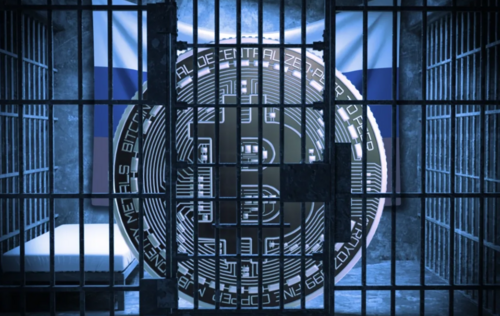

Miller Whitehouse-Levine is policy director at the DeFi Education Fund, a nonpartisan advocacy group working to educate policymakers about DeFi.
In response to Russia’s ongoing invasion of Ukraine, the US has enacted a severe set of economic sanctions targeting the Russian government (including President Vladimir Putin himself), wealthy individuals, and Russian businesses closely associated with the Kremlin.
But shortly after these sanctions were announced, Sen. Elizabeth Warren (D-MA) retweeted a sensational New York Times article that suggested cryptocurrencies could be used to evade U.S. sanctions. Then, in a March 2 letter to the Treasury Secretary, Warren called for increased “scrutiny” of digital assets — adding her voice to those claiming crypto and decentralized finance offer Putin a workaround to U.S. sanctions.
It’s an attention-grabbing story. There’s just one problem: it isn’t true.
Sanctions impose legal restrictions on U.S. persons’ ability to transact with sanctioned individuals or businesses. Sanctions evasion does not refer to a sanctioned individual’s ability to own an asset, but rather to U.S. persons who evade their obligation not to transact with, or facilitate transactions with, sanctioned individuals and entities. For digital assets to serve as a tool of sanctions evasion, they would have to allow U.S. persons to transact with sanctioned entities without incurring consequences or exposing their activity to law enforcement.
And that’s precisely what digital assets don’t do. In fact, digital assets are uniquely ill-suited for sanctions evasion because of all the ways that digital assets can enhance sanctions compliance when compared to traditional financial markets.
Despite continuing efforts and intense scrutiny, the traditional financial system has never come close to completely denying illicit actors’ use of financial services. Assessments by the U.S. government and others have estimated that the illicit economy is massive—amounting to well over a trillion dollars, and dwarfing the amount of illicit financial activity actually disrupted by law enforcement.
Yes, cryptocurrencies can also be used for illicit financial activity — including sanctions evasion. But the reality is that digital assets are harder to exploit for illicit purposes at scale than the traditional ecosystem.
Why is that? The answer has to do with how transaction information is stored in peer-to-peer digital asset transactions. Specifically, transparent blockchains create a permanent and immutable record of transactions.
Examples of how this transparency trips up criminals abound. In just the last few weeks, two of the largest cryptocurrency hacks in history, the Bitfinex hack and The DAO hack, have been solved by analyzing on-chain data. Those hacks occurred years ago; the data necessary to trace the hackers has remained publicly available to law enforcement—and anyone else with an internet connection—ever since.
What’s more, software tools to analyze this copious on-chain information are only becoming more sophisticated. Crypto businesses are already using these tools and so is the Department of Justice, which recently announced the formation of a cryptocurrency enforcement unit.
The government is already looking for crypto-based illicit financial activity, including sanctions evasion, and is becoming very proficient at finding it. In short, sanctions compliance is alive and well in the world of cryptocurrency.
If Senator Warren and other Congressional leaders are truly concerned about crypto facilitating sanctions evasions on a broad scale, there are steps they can take to prevent that from ever becoming a reality. Chief among them is ensuring that crypto networks and decentralized finance can develop here in the United States.
That will give the United States government and law enforcement the best chance to develop and implement the most effective sanctions compliance tools in digital asset markets, and it will allow collaboration to foster between digital asset market participants and U.S. law enforcement.
Congressional leaders should stop speculating without evidence about how criminals could leverage cryptocurrencies to escape U.S. sanctions; instead, they should voice their support for the crypto industry’s already extensive sanctions compliance efforts and help to make them better.
